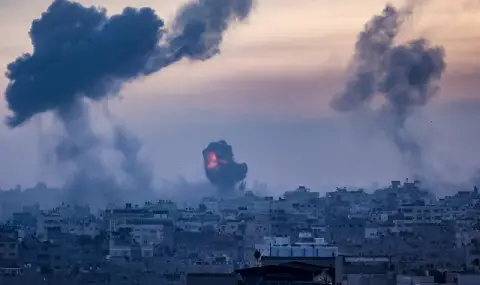The United States and Egypt have agreed to reduce the number of sticking points in Gaza truce talks and set a timeline for implementing the first steps to end the more than ten-month conflict. sources report for TV “Al Arabiya” after another tour of US Secretary of State Anthony Blinken in the Middle East in an attempt to reach an agreement between "Hamas" and Israel.
However, a number of differences still remain. According to reports, the Palestinian movement has requested a temporary truce so that it can determine the number of Israeli hostages held in Gaza, but Israel has refused a ceasefire while negotiations are underway.
Israel insists "Hamas" not to participate in the governance of Gaza after the end of the war and wants its members to be deported from the enclave. In addition, the Israeli side has refused to promise not to re-arrest Palestinian prisoners who would be released in a possible deal. Another point of contention is Israel's demand to control security in northern Gaza and impose restrictions on the return of displaced Palestinians to that area.
Disagreements regarding the Philadelphia Corridor along the Gaza border with Egypt and the “Rafah” between Egypt and Gaza, from which Israeli Prime Minister Benjamin Netanyahu has announced that he will not withdraw.
According to an article in "National" the misunderstanding between Egypt and Israel regarding the Palestinian part of "Rafah" and the Philadelphia Corridor has led to the most serious tension between the two countries since the signing of a peace treaty 45 years ago.
The publication's sources in the United Arab Emirates said Israel insisted on keeping a limited number of troops in the two areas, sharing with Egypt real-time satellite images. Egypt has rejected the proposal and, for its part, has proposed the deployment of UN and US units, which Israel does not agree with.
According to Cairo, the Israeli presence in "Rafah" and the Philadelphia Corridor violates treaties between the two countries and is a challenge to its national security. In response, Egypt closed its section of the border crossing, which is the main entrance for humanitarian aid to Gaza.
Israel's arguments are that underground tunnels under the border between Egypt and Gaza serve to smuggle weapons and goods with a possible dual purpose for "Hamas". Cairo categorically denies and insists that it destroyed the tunnels nearly ten years ago.
The status of Rafah, the Philadelphia Corridor and the Netzarim Corridor, which separates northern and southern Gaza, is also the focus of an op-ed by Osama Saraya in the Egyptian newspaper Al Ahram. According to him, Israel's plans for "Netzarim" are untenable, and adherence to the 2005 accords under which Israel must withdraw from Gaza is key to achieving peace. The author also defends the Egyptian position against Israeli military presence in the Philadelphia Corridor and for the operation of “Rafah” under Palestinian control.
Anthony Blinken's tour of the Middle East came after talks in the Qatari capital Doha last week broke down without a breakthrough. After his visit to Tel Aviv, the US secretary of state announced that Israeli Prime Minister Benjamin Netanyahu had accepted an American proposal aimed at reducing differences. "Hamas" said the proposal deviates from previously agreed upon issues. Negotiations are expected to continue this week in Cairo.
